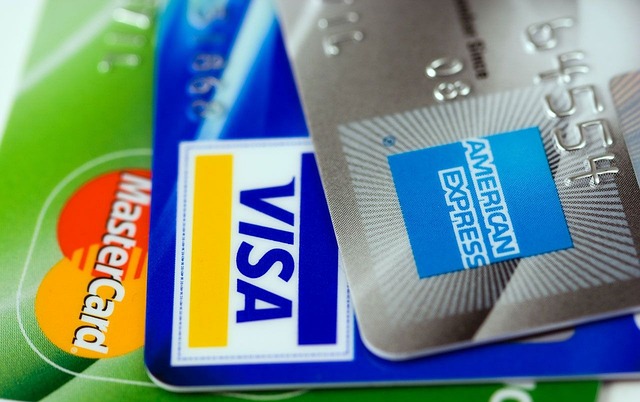The Differences between Personal and Business Credit and How Your Personal Credit Impacts Your Small Business
Starting a small business involves navigating numerous financial complexities, and understanding the distinction between personal and business credit is crucial for long-term success. Many entrepreneurs mistakenly believe these two credit profiles operate independently, but the reality is far more interconnected, especially for small business owners. Understanding how personal credit impacts your business and learning to manage both effectively can mean the difference between securing favorable financing terms and facing costly rejection.
BUILD CREDIT FOR A SMALL BUSINESSBOOST CREDIT SCORES
Fresh Start Consulting
7/18/20255 min read


The Differences between Personal and Business Credit and How Your Personal Credit Impacts Your Small Business
Starting a small business involves navigating numerous financial complexities, and understanding the distinction between personal and business credit is crucial for long-term success. Many entrepreneurs mistakenly believe these two credit profiles operate independently, but the reality is far more interconnected, especially for small business owners. Understanding how personal credit impacts your business and learning to manage both effectively can mean the difference between securing favorable financing terms and facing costly rejection.
Understanding Personal Credit
Personal credit represents your individual creditworthiness as a consumer. This credit profile is built through your history of managing personal financial obligations such as credit cards, auto loans, mortgages, student loans, and other consumer debts. Your personal credit is tracked by three major credit bureaus: Experian, Equifax, and TransUnion, which compile your credit information into reports and calculate credit scores typically ranging from 300 to 850.
Several factors influence your personal credit score, with payment history carrying the most weight at approximately 35% of your score. Credit utilization, which measures how much of your available credit you're using, accounts for about 30%. The length of your credit history contributes roughly 15%, while new credit inquiries and credit mix each represent about 10% of your overall score.
Personal credit affects virtually every aspect of your financial life, determining your ability to secure loans, the interest rates you'll pay, and even influencing rental applications and employment opportunities. Maintaining good personal credit requires consistent on-time payments, keeping credit utilization low, avoiding excessive new credit applications, and monitoring your credit reports for accuracy.
Understanding Business Credit
Business credit, conversely, reflects your company's creditworthiness as a separate legal entity. This credit profile is built through your business's financial relationships with vendors, suppliers, lenders, and other commercial entities. Business credit is tracked by specialized commercial credit bureaus including Dun & Bradstreet, Experian Business, and Equifax Business.
Business credit scores operate differently from personal credit scores, with various bureaus using different scoring models and ranges. For example, Dun & Bradstreet uses a PAYDEX score ranging from 1 to 100, where 80 or above is considered excellent. These scores evaluate factors such as payment history with vendors, credit utilization, company size, industry risk, and years in business.
Building business credit offers numerous advantages, including access to higher credit limits, better financing terms, protection of personal assets, and the ability to delegate financial responsibilities to employees. Strong business credit also enhances your company's professional reputation and can lead to more favorable relationships with suppliers and partners.
FreshStartConsult.com has helped many businesses build credit. Schedule a Free, no-obligation consultation.
Key Differences Between Personal and Business Credit
The fundamental differences between personal and business credit extend beyond mere ownership. Personal credit is tied to your Social Security number and reflects your individual financial behavior, while business credit is associated with your Employer Identification Number (EIN) and represents your company's financial track record.
Legal separation represents another crucial distinction. Personal credit obligations make you personally liable for debts, meaning creditors can pursue your personal assets if you default. Business credit, when properly established, creates a legal separation between your personal and business finances, potentially protecting your personal assets from business creditors.
The reporting mechanisms also differ significantly. Personal credit bureaus focus on consumer lending patterns and individual financial behavior, while business credit bureaus analyze commercial relationships, industry trends, and business performance metrics. This means the factors that improve your personal credit may not necessarily enhance your business credit profile.
Credit limits and terms vary considerably as well. Business credit often provides access to higher credit limits and more flexible repayment terms, reflecting the different cash flow patterns and capital needs of businesses compared to individual consumers.
How Personal Credit Impacts Your Small Business
Despite the theoretical separation between personal and business credit, your personal credit significantly impacts your small business, particularly during the early stages. Most small business owners discover that lenders routinely examine personal credit when evaluating business loan applications, especially for startups and smaller enterprises without extensive business credit histories.
Personal guarantees represent one of the most direct ways personal credit affects your business. Many business loans, credit cards, and financing agreements require personal guarantees, making you personally responsible for the debt. When you provide a personal guarantee, lenders will absolutely scrutinize your personal credit score and history, using this information to determine loan approval and terms.
Interest rates and financing terms are directly influenced by your personal credit score. Even when applying for business financing, a strong personal credit score can result in significantly lower interest rates, reduced fees, and more favorable repayment terms. Conversely, poor personal credit can lead to higher costs or outright rejection, regardless of your business's potential.
The impact extends to various types of business financing. Small Business Administration (SBA) loans, equipment financing, merchant cash advances, and business credit cards all typically consider personal credit as part of their evaluation process. Some lenders may approve business financing based primarily on personal credit, especially for newer businesses without established business credit profiles.
Beyond traditional lending, personal credit affects other business relationships. Landlords often check personal credit when evaluating commercial lease applications, suppliers may review personal credit before extending trade credit terms, and some business partnerships require personal credit verification.
Strategies for Managing Both Credit Profiles
Successfully managing both personal and business credit requires a strategic approach that recognizes their interconnected nature while working to establish clear separation over time. Start by ensuring your business is properly structured as a separate legal entity, whether as an LLC, corporation, or other appropriate business structure.
Obtain an Employer Identification Number (EIN) from the IRS and use this number consistently for all business-related financial activities. Open dedicated business bank accounts and avoid mixing personal and business expenses, as this commingling can undermine the legal separation you're trying to establish.
For personal credit management, continue following established best practices: pay all bills on time, maintain low credit utilization ratios, monitor your credit reports regularly, and address any errors promptly. Consider setting up automatic payments to ensure you never miss due dates, and use credit monitoring services to stay informed about changes to your credit profile.
Building business credit requires patience and consistency. Start by establishing relationships with vendors and suppliers who report to business credit bureaus. Many office supply companies, telecommunications providers, and other B2B service providers offer trade credit that can help build your business credit profile. Always pay these accounts according to terms or early when possible.
Apply for a business credit card, but research options that don't require personal guarantees or that help build business credit while minimizing personal credit impact. Some cards report only to business credit bureaus, helping establish your business credit without affecting your personal profile.
Long-term Benefits of Separation
Successfully separating your personal and business credit creates numerous long-term advantages. As your business credit strengthens, you'll gain access to financing based solely on your company's merits rather than your personal financial history. This separation also provides better asset protection, ensuring that business financial difficulties don't necessarily impact your personal credit and vice versa.
Strong business credit enables growth opportunities that might not be available through personal credit alone. Higher credit limits, better terms, and specialized business financing products become accessible as your business establishes its own creditworthiness.
Additionally, well-managed business credit can actually support your personal financial goals. A successful business with strong credit can provide personal income stability and wealth-building opportunities that enhance your overall financial position.
Conclusion
The relationship between personal and business credit is complex and evolving, particularly for small business owners. While complete separation may be the ultimate goal, understanding how personal credit impacts your business is essential for making informed financial decisions. By managing both credit profiles strategically and working toward clear separation over time, you can position both yourself and your business for long-term financial success.
If you need help, the experts at FreshStartConsult.com can help. Schedule a free, no-obligation consultation.
Remember that building strong credit profiles takes time and consistency. Focus on establishing good financial habits, maintaining clear separation between personal and business finances, and regularly monitoring both credit profiles to ensure accuracy and continued improvement. With patience and proper management, you can leverage both personal and business credit to achieve your entrepreneurial goals while protecting your financial future.
CONTACT INFO
Address
Bringing People Hope
Email to find out how it works!
info@freshstartconsult.com
FRESH Start Consulting
100 Matawan Road
Matawan, NJ 07747
Suite 325 #1129
